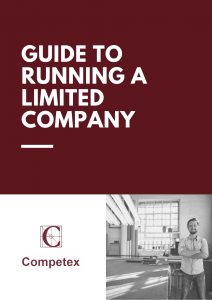Limited Company, Sole Trader or Partnership?
A Guide to Business Structures
Small businesses usually have one of the following trading structures:
- Sole trader
- Partnership
- Limited company
- Limited Liability Partnership (LLP)
We are always happy to offer advice on the best business structure to choose.
Sole Trader
Partnership
A partner does not have to be an actual person. For example, a limited company counts as a ‘legal person’ and can also be a partner.
Limited Company
The company can share its profit, after tax, amongst its shareholders as dividends. The director(s) are responsible for running the company and usually own shares, but are not personally responsible for any losses the business may make.
Setting up a limited company enables you to plan your business finances separately from your own personal finances and protect your personal assets.
Learn more about running a limited company by downloading our free e-book.
Limited Liability Partnership (LLP)
A partnership must consist of two or more partners and have at least two partners designated to assume additional legal responsibilities on behalf of the LLP.
LLPs tend to be suitable for a partnership with a small, constant number of members who all make comparable contributions to the company and take home a similar level of profit, such as solicitors and accountancy firms. However, if you wish to sell shares in your business or plan to employ lots of people whose total salaries will be higher than the owners’, a limited company may be more suitable.





